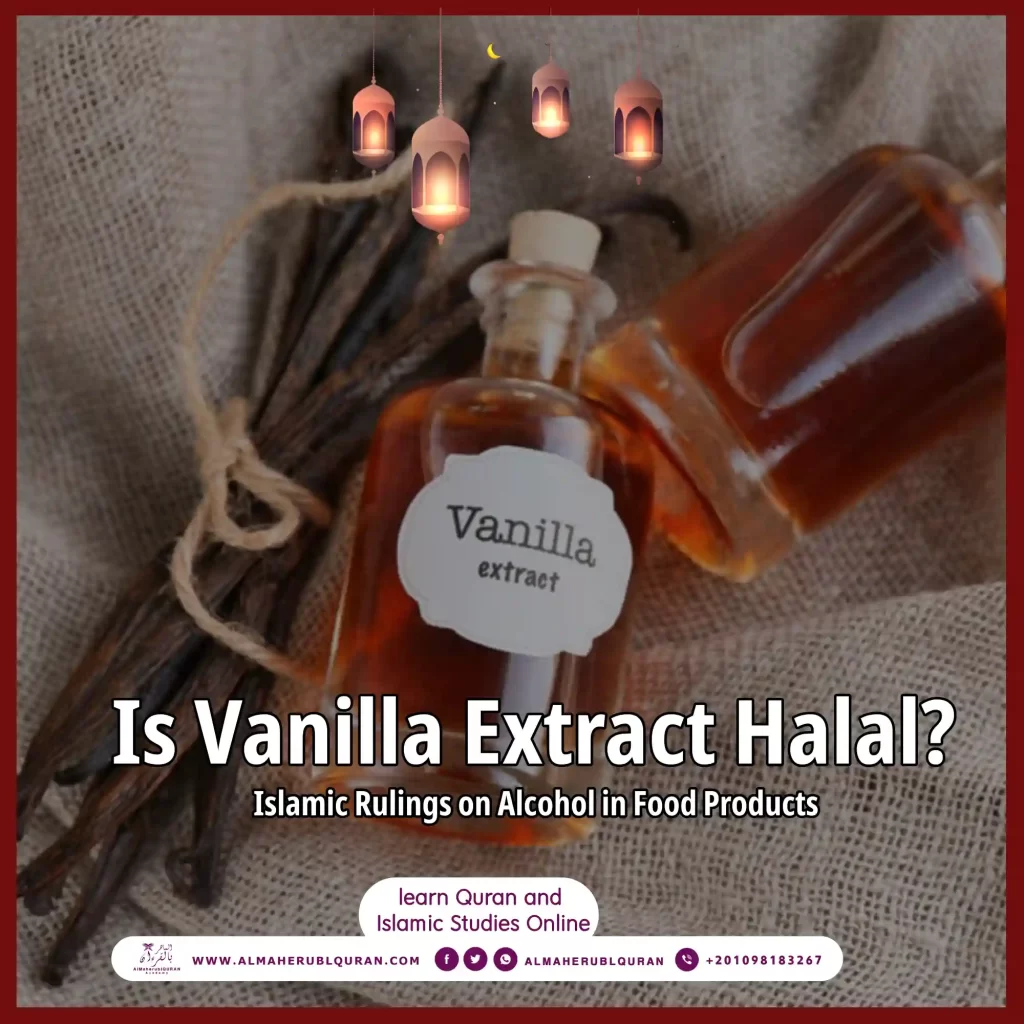Is Vanilla Extract Halal? Islamic Rulings on Alcohol in Food Products

Vanilla extract is a popular ingredient in baked goods and desserts, but for Muslim consumers, its halal status can be a source of confusion. This article explores the topic of vanilla extract and its halal status according to Islamic rulings.
Is Vanilla extract Halal?
There are hundreds of ingredients that must be avoided in a halal diet. Some ingredients, such as pork, gelatin, and whey, are clearly not halal.
However, others are less clear. This is especially true for additives or unclear ingredients called “natural flavors.”
In this article, we take a closer look at is vanilla extract halal? and whether it is permissible for Muslims to consume.
The quick answer is both yes and no. There are two different schools of thought regarding the halal status of vanilla extract.
Read on to delve deeper into the topic and discover why some Muslim scholars believe that vanilla extract is not halal.
Permissibility of Consuming Vanilla Extract Mixed with Alcohol in Islam
Regarding the ruling on consuming “vanilla,” it is permissible even if it is mixed with alcohol during its preparation for two reasons:
Firstly, alcohol is not considered impure from a sensory perspective, rather it is pure.
Secondly, alcohol does not have an effect on “vanilla.” It does not intoxicate the person consuming it, and there is no trace of alcohol when eating it. The small amount that may be present during the preparation process is consumed and does not leave any effect on the final product. Therefore, it is not prohibited to consume it.
As the Quran states, “Do not think that any amount of alcohol makes something haram. Rather, if the amount is such that drinking the mixture will cause intoxication, then it is haram. However, if the amount is negligible and its effect disappears and does not cause intoxication, then it is halal.” Therefore, the consumption of vanilla, even with a negligible amount of alcohol, is considered permissible.
Vanilla Extract - Understanding the Islamic Definition of Alcohol
The term “alcohol” in Islamic rulings specifically refers to ethyl alcohol, which is the type of alcohol found in alcoholic beverages. This type of alcohol is considered haram because it intoxicates the mind and affects a person’s behavior.
Different Types of Alcohol
Not all types of alcohol are created equal. There are many types of alcohol that are not derived from grapes or dates and are not intoxicating. The alcohol found in vanilla extract is typically derived from the fermentation of corn or other grains and is known as “denatured alcohol” or “isopropyl alcohol”.
The Permissibility of Denatured Alcohol in Food Products
According to the Islamic Fiqh Academy, the use of denatured alcohol in food products is permissible as long as the alcohol content is less than 0.5%. This means that vanilla extract is halal as long as the alcohol content is below this threshold.
Different Views on Alcohol in Food Products
According to the Islamic Fiqh Academy, the use of denatured alcohol in food products is permissible as long as the alcohol content is less than 0.5%. This means that vanilla extract is halal as long as the alcohol content is below this threshold.
While some scholars consider any amount of alcohol to be haram, the majority of scholars and Islamic organizations, including IFANCA and HFA, consider vanilla extract to be halal as long as the alcohol content is below 0.5%.
Conclusion
In conclusion, vanilla extract is generally considered halal as long as the alcohol content is negligible. The use of alcohol in food production is common and does not necessarily make the final product haram. As with any food product,
it is important to read the ingredients list and consult with trusted Islamic scholars to determine its halal status.
